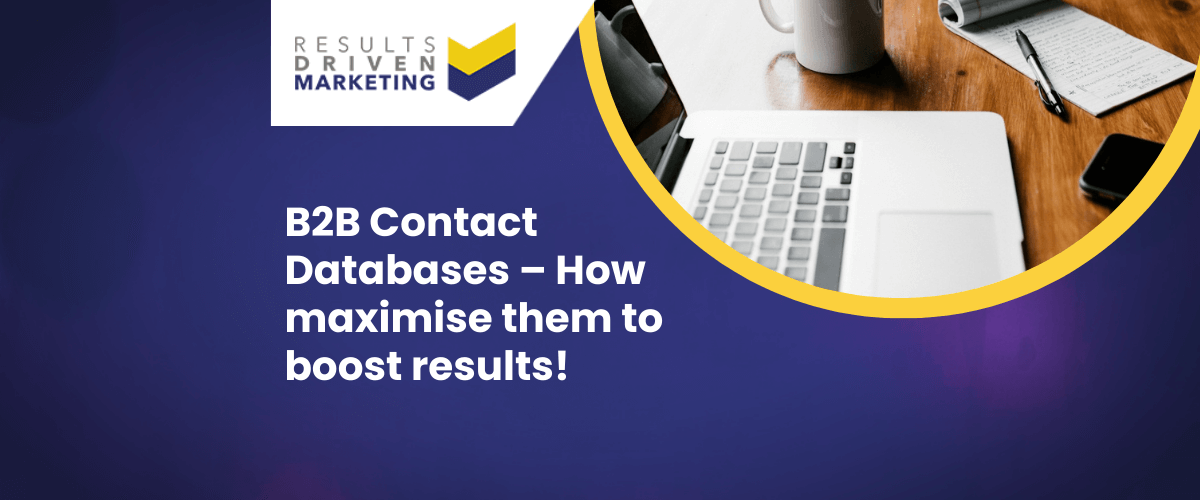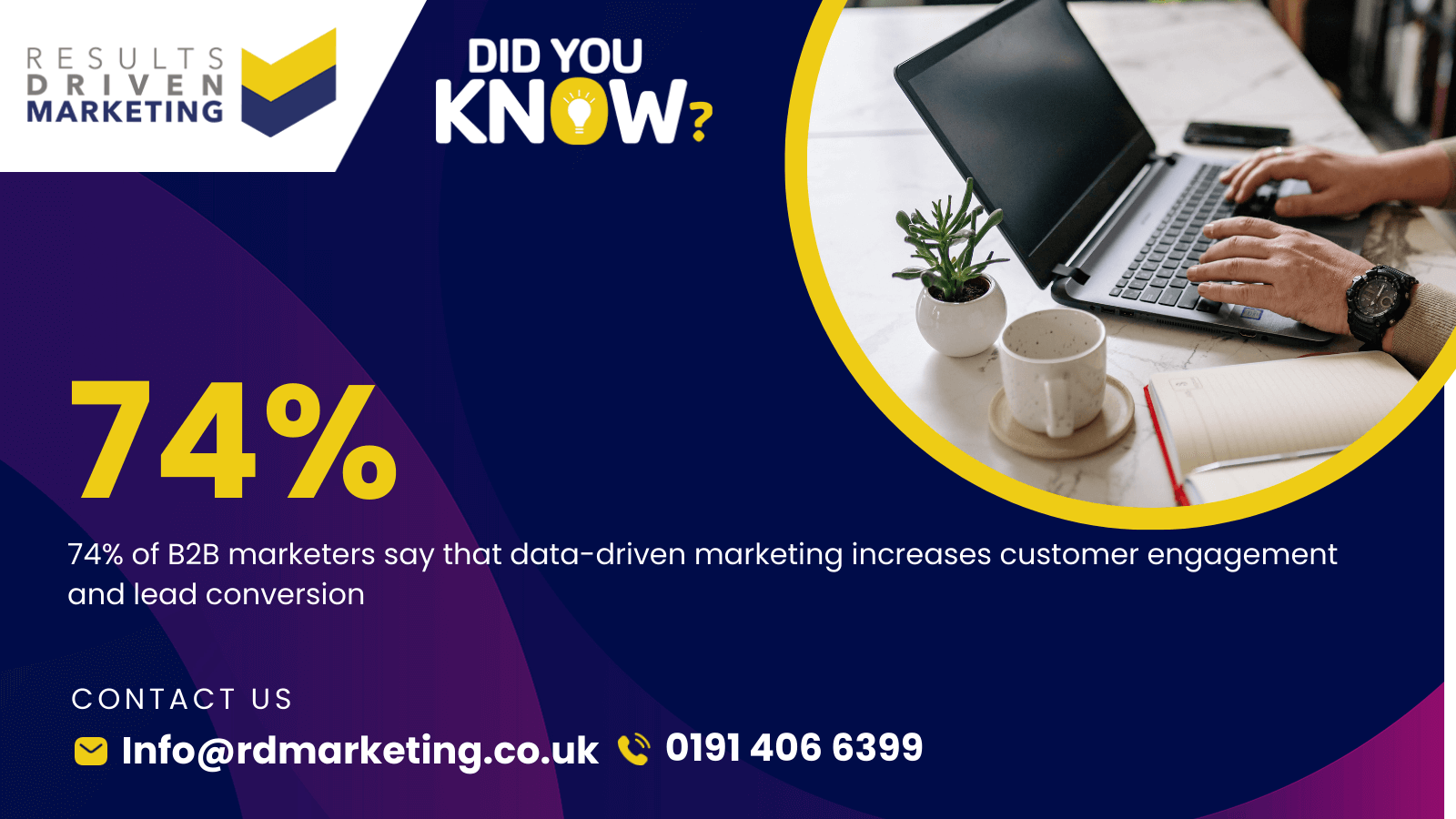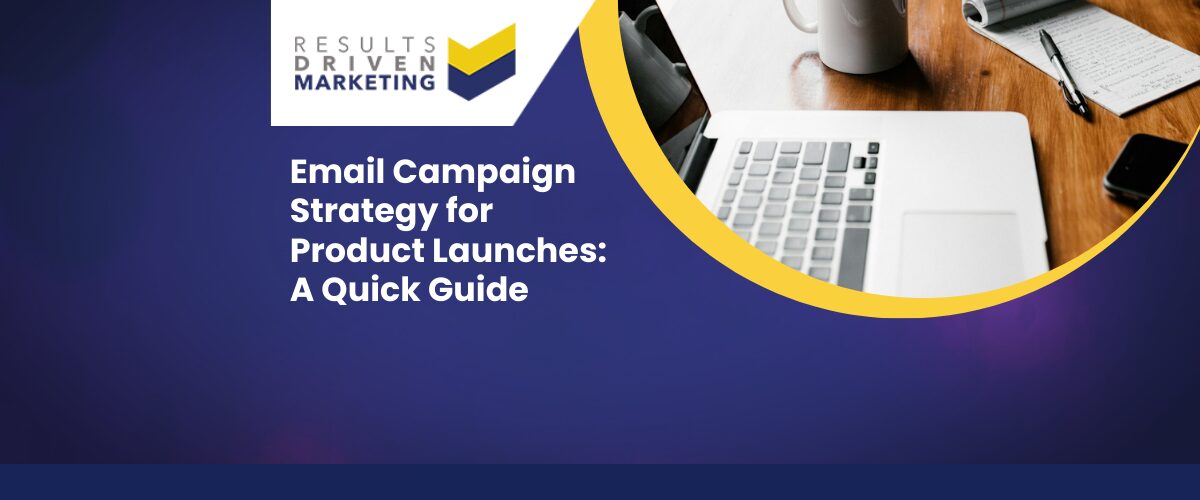
B2B Contact Databases – How maximise them to boost results!
B2B contact databases are the backbone of effective B2B marketing and sales, helping businesses connect with the right decision-makers, drive lead generation, and improve engagement. But simply having a business contact database isn’t enough—data accuracy, segmentation, and regular updates are key to maximising its impact.
A B2B contact database is a collection of business contact details, including company names, key decision-makers, email addresses, phone numbers, and industry classifications. It’s used for email marketing, telemarketing, direct mail campaigns, and targeted sales outreach. A well-maintained B2B Contact database ensures better accuracy, reducing bounce rates and improving conversion rates.
Need high-quality business data? Check out our B2B Data solutions.
[tabelofcontent]
What are B2B Contact Databases?
B2B Contact Databases are a collection of contact information – including names, addresses, phone numbers, email addresses and other relevant information – of businesses and/or individuals who may potentially be interested in a company’s products or services.
B2B Contact Databases can be used for campaigns to generate leads, customer communications, sales distribution and more.
What are B2B Contact Databases used for?
Contact databases are used for direct mail campaigns, promotional mailings, and targeted marketing. These lists are typically compiled from different sources to create an up-to-date list of customers, prospects, and subscribers. B2B Contact Databases are often used to send newsletters, product updates, special offers, and other related communications.
Why are they so important?
B2B Contact Databases are important because they provide a way to quickly target potential customers with specific messages that are likely to be of interest to them.
B2B Contact Databases allow businesses to quickly and easily target a specific and relevant audience to ensure higher conversion rates and increased engagement.
These lists can be easily customised to the target market and are the most cost-effective means of marketing. Additionally, with business lists, companies can reach a larger and more engaged customer base, help to build relationships with customers, generate leads, and create brand awareness.
Why a B2B Contact Database is Essential for Growth
In today’s competitive market, relying on guesswork is no longer enough. A B2B contact database gives your marketing and sales teams the structure they need to work smarter, not harder. Instead of wasting time on cold, untargeted outreach, you can focus every effort on the decision-makers most likely to convert.
1. Stronger Pipeline, Less Wasted Effort
With a clean, segmented database, your sales team spends less time chasing dead ends and more time speaking with prospects that fit your ideal customer profile.
2. Multi-Channel Campaign Power
A B2B contact database isn’t just for email. It fuels consistent messaging across telemarketing, direct mail, and social selling, keeping your brand visible at every touchpoint.
3. Data-Driven Personalisation
The more detail your database holds—such as job role, company size, or turnover—the more tailored your messaging can be. Personalisation is what turns cold outreach into warm conversations.
4. Long-Term ROI
Accurate, compliant data keeps bounce rates low, protects your reputation, and ensures your campaigns remain profitable. Regular data cleansing and data enrichment help you maintain this advantage over time.
At Results Driven Marketing, our B2B contact databases are built around your ICP, fully GDPR-compliant, and designed to give you the confidence to scale campaigns quickly.
Why a B2B Contact Database Matters for High-Performing Marketing and Sales
A b2b contact database is one of the most valuable assets any marketing or sales team can have. It gives you structured, accurate, and compliant access to the decision-makers who influence purchasing, partnerships, and supplier choices. Instead of relying on guesswork or outdated spreadsheets, a well-maintained b2b contact database provides the clarity, targeting power, and consistency needed to run campaigns that convert.
The Strategic Advantage of Using a B2B Contact Database
When you operate from a structured b2b contact database, every part of your outreach becomes more effective. You instantly gain the ability to:
-
Target the right sectors, job roles, and company sizes with precision.
-
Personalise messaging based on firmographics such as industry, turnover, or location.
-
Coordinate multi-channel campaigns without losing consistency across email, phone, or direct mail.
-
Reduce wasted spend and avoid marketing to irrelevant or outdated contacts.
-
Scale campaigns quickly, as your database becomes a repeatable engine for lead generation.
Rather than starting from scratch each time, your team benefits from a central source of truth that supports both marketing and sales activity.
How a B2B Contact Database Improves Multi-Channel Outreach
Email Marketing
A b2b contact database fuels stronger inbox performance with accurate email address list data. This means fewer bounces, better deliverability, and higher engagement, especially when campaigns are segmented by industry or role.
Telemarketing
With verified telemarketing data, your team can reach genuine decision-makers instead of switchboards. Accurate phone numbers mean more right-party conversations and a faster route to appointments.
Direct Mail
For physical campaigns, a b2b contact database ensures your materials land with the right people, improving response rates and supporting high-value outreach.
By unifying all contact information in one place, you can run campaigns that reinforce each other—for example, warming prospects with an email before calling them.
Why B2B Contact Database Quality Is Critical
A b2b contact database only performs well when the data behind it is accurate, compliant, and regularly updated. High-quality data ensures:
-
Lower bounce rates across channels.
-
Fewer wasted dials or emails.
-
Better segmentation for tailored messaging.
-
Stronger brand reputation.
-
GDPR-aligned outreach that protects your business.
This is why ongoing data cleansing and enrichment are essential. Outdated contact details reduce ROI quickly, while fresh, complete records help every channel perform at its peak.
At Results Driven Marketing, every b2b contact database we supply is GDPR-compliant, accurately segmented, and aligned to your Ideal Customer Profile—helping you connect directly with decision-makers and run campaigns that deliver measurable results.
Benefits of Using a B2B Contact Database
A b2b contact database is one of the most powerful assets a business can have for marketing and sales. Without it, your outreach is essentially a guessing game—wasting time, effort, and money on leads that may never convert. With the right data, however, you can refine your targeting, increase engagement, and drive higher conversions. Here’s how leveraging a high-quality b2b contact database can make a real difference.
1. Increased Lead Generation and Conversion Rates
Generating high-quality leads is the foundation of any successful b2b marketing strategy. But not all leads are equal. A well-structured b2b contact database ensures that your marketing team is reaching the right audience—decision-makers, buyers, and key influencers—instead of wasting resources on uninterested contacts.
- A verified b2b contact database improves cold outreach effectiveness, ensuring emails and calls reach the right people.
- Higher engagement rates from targeted campaigns mean more conversions and stronger sales pipelines.
- With email address list data, businesses can send personalised offers, promotions, and product launches directly to relevant prospects, increasing open and response rates.
2. Enhanced Targeting and Segmentation for Personalised Marketing
Marketing to the wrong audience is one of the biggest reasons campaigns fail. A b2b contact database allows you to segment data based on industry, company size, location, job title, or past interactions—helping you tailor marketing efforts to specific groups.
- Industry-Specific Outreach: Whether you’re targeting manufacturers, healthcare providers, or IT firms, a refined database helps you focus on businesses that are most likely to need your services.
- Geographic Targeting: Need to expand internationally? A well-structured international email list ensures you can reach global markets without wasting resources.
- Job Role-Based Segmentation: Sending the right message to CEOs, marketing directors, or procurement managers increases relevance and engagement.
By personalising messaging to match the needs of each segment, businesses experience higher engagement, better response rates, and stronger brand relationships.
3. Improved Sales Efficiency with Accurate Contact Data
Sales teams waste an enormous amount of time chasing down outdated, incorrect, or irrelevant leads. A high-quality b2b contact database eliminates that frustration by ensuring every contact is verified, up-to-date, and aligned with your ideal customer profile.
- Fewer wasted calls and emails mean sales teams can focus on prospects with a genuine interest in your products or services.
- With telemarketing data, sales reps can connect directly with decision-makers instead of struggling to find the right person.
- CRM integration ensures seamless workflow and tracking of all interactions, making it easier to follow up with warm leads.
4. Cost-Effectiveness Compared to Broad-Spectrum Marketing
Traditional marketing methods like billboards, TV ads, and broad PPC campaigns can be expensive, with no guarantee that your message will reach the right audience. A b2b contact database allows you to cut down marketing costs while improving targeting accuracy.
- Direct mail campaigns using direct mail data reach only relevant businesses, reducing unnecessary expenses.
- Cold email and telemarketing campaigns based on refined databases are far more cost-effective than mass advertising.
- Companies using well-segmented databases spend less on ads because they focus on highly qualified leads rather than broad, untargeted audiences.
This means businesses get better results while reducing overall marketing spend.
5. Higher ROI Through Data-Driven Outreach
Success in b2b marketing is all about precision and data-driven decisions. Businesses that rely on a b2b contact database for lead generation, sales outreach, and campaign optimisation see significantly better ROI compared to those using scattered or outdated data.
- Accurate and enriched data means fewer bounced emails, wrong numbers, or uninterested recipients. Our data enrichment services help businesses fill in missing information, correct inaccuracies, and update contact details for better results.
- Regular data cleansing keeps databases fresh, ensuring better email deliverability and response rates. If your database is outdated, our data cleansing services help remove redundant or incorrect information.
- Compliant and GDPR-friendly data protects businesses from potential legal issues. Using our CTPS checker ensures that your telemarketing campaigns follow UK regulations.
How a B2B Contact Database Helps You Build Lasting Business Relationships
A well-managed B2B contact database doesn’t just improve lead generation — it strengthens the way you build and maintain relationships with potential and existing clients. When your marketing and sales teams have access to accurate, structured data, every conversation becomes more relevant and valuable.
Turning Cold Outreach into Warm Conversations
Reaching out to new prospects can often feel like guesswork. But with a clean, segmented B2B contact database, every contact you approach already fits the profile of someone likely to benefit from your product or service.
This lets you:
-
Personalise every email or call with industry-relevant context
-
Follow up confidently knowing the details are current and correct
-
Prioritise contacts with the highest potential to convert
Rather than starting from zero, your team works with informed insights that make outreach smoother, faster, and far more effective.
Keeping Engagement Consistent Across Channels
A B2B contact database supports every part of your marketing mix — from email campaigns and phone outreach to social selling and direct mail. Because your contact information stays consistent across all platforms, you can:
-
Coordinate campaigns across multiple channels with one data source
-
Track engagement more accurately through integrated CRM systems
-
Identify which channels or messages perform best for each audience segment
When your data stays unified, your message stays consistent — and consistency builds trust.
Supporting Long-Term Growth and Retention
The true value of a B2B contact database lies in its ability to evolve with your business. As new contacts are added, old ones updated, and segments refined, the database becomes a living asset that fuels both new business and repeat sales.
Regular data cleansing and enrichment ensure that every campaign is backed by fresh, compliant information — helping you nurture long-term relationships, protect your brand reputation, and sustain predictable growth.
How to Use a B2B Contact Database Effectively
A B2B contact database isn’t just a collection of names and numbers—it’s a tool that can transform your marketing and sales when used correctly. To get the most out of it, you need to combine accurate data with the right strategy.
1. Align With Your ICP
Start by mapping your ideal customer profile (ICP). Use your database to filter by:
-
Industry or sector – focus on niches where your product solves a clear problem.
-
Company size – SMEs, mid-market, or enterprise require different approaches.
-
Job role & seniority – target decision-makers like CEOs, Directors, or Procurement Managers.
-
Geography – refine by region, postcode, or country for localised campaigns.
2. Segment for Personalisation
Segmentation is what makes outreach feel relevant. Break your database into smaller groups and tailor your messaging accordingly. For example:
-
Send cost-saving messages to Finance Directors.
-
Share growth-focused insights with Marketing Managers.
-
Promote efficiency benefits to Operations Leaders.
3. Apply Across Multiple Channels
A B2B contact database powers more than just email. You can:
-
Run cold email campaigns to warm up new leads.
-
Use telemarketing data for follow-up conversations.
-
Target decision-makers with direct mail for high-value offers.
-
Support campaigns with LinkedIn outreach for added credibility.
4. Maintain Accuracy and Compliance
Even the best database degrades over time. Protect your ROI by:
-
Scheduling regular data cleansing to remove bounces and duplicates.
-
Using data enrichment to add missing fields like turnover or SIC codes.
-
Screening against the CTPS before calling to stay compliant.
5. Measure and Optimise
Always track performance metrics—open rates, response rates, conversions—and refine your targeting. Small improvements in segmentation or messaging can deliver a big boost in ROI.
Pro tip: A clean, segmented, and compliant database isn’t just a marketing asset—it’s a growth engine that gives your sales team a clear path to decision-makers.
B2B Contact Database Buyer’s Checklist (Quality, Compliance, ROI)
Before you invest in a b2b contact database, run this quick checklist to protect deliverability, budget and brand reputation.
-
Data source transparency
Ask how the b2b contact database is compiled (first-party, partnerships, public records). Insist on written sourcing and collection methods. -
Freshness & update cadence
Confirm last-verified dates and the refresh cycle (e.g., rolling monthly). Stale data = bounces and wasted spend. -
Coverage & fit to ICP
Check volume by industry, job title, seniority, employee band, turnover and region. Request a count breakdown that mirrors your ICP. -
Verification standards
Look for stated guarantees (e.g., 90%+ email accuracy; TPS/CTPS-checked phones). Ask for sample match and hard-bounce targets. -
GDPR/PECR compliance
Ensure lawful basis, data-subject rights handling, DPA availability, and opt-out mechanisms. For calling, validate with a CTPS check. -
Deliverability readiness
Can the provider supply seed tests, bounce projections and warming guidance? Ask for historic inboxing benchmarks by sector. -
Depth & enrichment
Prioritise fields that power segmentation and routing: SIC/industry codes, tech install, location, seniority, direct dials, LinkedIn, turnover bands. -
Licensing clarity
Multi-use vs one-time, send limits, seat limits, redistribution rules, and replacement/refund policy if accuracy falls below guarantee. -
Integration & hygiene
Confirm easy import to your CRM/MA stack and availability of dedupe/suppression against your current customers and opt-outs. -
Sampling & proof
Always test a statistically meaningful sample (e.g., 200–500 records) across segments before full purchase. -
Ongoing maintenance
Plan quarterly cleansing, enrichment and opt-out syncing so your b2b contact database keeps performing.
Tip: Pair high-quality data with tight segmentation and message-offer alignment for the fastest lift in pipeline. If you want this wrapped for you—counts, samples, GDPR paperwork and a refresh plan—RD Marketing can handle the lot.
Common Mistakes When Using a B2B Contact Database
Even the best B2B contact database can underperform if it isn’t used correctly. Many businesses fall into avoidable traps that limit the effectiveness of their campaigns. Knowing these pitfalls—and how to avoid them—can save you wasted spend and missed opportunities.
Over-Reliance on Volume Instead of Quality
It can be tempting to go after the largest possible database, but volume without relevance often results in poor engagement. A smaller, highly targeted database aligned with your ICP will almost always outperform a broad, unfocused list.
Neglecting Regular Cleansing
Data decays quickly. Outdated emails and disconnected phone numbers hurt deliverability and waste sales team time. Regular data cleansing ensures your B2B contact database remains an asset rather than a liability.
Ignoring Segmentation
Sending the same generic message to every contact is one of the biggest mistakes. Without segmentation by job role, industry, or company size, your outreach lacks relevance. Tailored campaigns drive much higher open, click, and conversion rates.
Skipping Compliance Checks
Failing to screen against GDPR, PECR, or CTPS regulations can put your business at risk of fines and reputational damage. Always work with compliant data sources and validate before launching campaigns.
Not Integrating with CRM and Marketing Tools
A B2B contact database is most powerful when connected with your CRM and marketing automation platforms. Without integration, you risk duplicate effort, missed follow-ups, and disjointed customer journeys.
B2B Contact Databases, What Types Are There?
B2B contact databases have become an integral part of modern business lists strategies, offering detailed insights to drive targeted outreach. These databases vary in their content, source, and utility. To give you a clearer picture, let’s delve into the different types of B2B contact databases:
Industry-specific Databases: Tailored to specific industries, these databases contain contacts related to sectors such as technology, healthcare, finance, or manufacturing. They help businesses narrow down their focus to niche markets.
Role-specific Databases: These B2B contact databases are curated based on specific job roles or titles, making it easier for businesses to reach out to decision-makers, managers, or any specific role within an organisation.
Geographical Databases: Focused on a particular region, country, or continent, these databases are essential for businesses targeting specific geographic markets or looking to expand into new territories.
Size-specific Databases: Ideal for businesses that tailor their products or services based on company size. Whether targeting startups, SMEs, or large enterprises, these databases offer segmented information.
Event-based Databases: Derived from attendees, speakers, or exhibitors of specific events, conferences, or trade shows. These are invaluable for post-event marketing or for businesses that focus on event-driven networking.
What else?
Technology Usage Databases: These provide information on companies based on the software or technology they use, allowing tech vendors to target potential clients more effectively.
Custom-curated Databases: Built based on custom requirements, these B2B contact databases are tailored to the unique needs of a business, combining various factors like industry, role, size, and geography.
Purchased or Rented Databases: These are ready-to-use databases procured from vendors who specialise in data collection and curation. It’s essential to ensure these databases are compliant with data protection regulations.
Self-built Databases: Created in-house using CRM systems, lead generation tools, or manual efforts. These databases grow over time as businesses engage with leads, clients, and partners.
Subscription-based Databases: Platforms or services where businesses pay a recurring fee to access and update their database. These platforms often provide real-time data updates and additional analytical tools.
It’s evident that B2B contact databases aren’t a one-size-fits-all solution. Depending on the business objectives, target audience, and strategic approach, companies might opt for one or a combination of these databases. As the business landscape continues to evolve, the utility and versatility of B2B contact databases become ever more pronounced, cementing their role as invaluable assets in the B2B contact database world.
Thinking of Building Your Own B2B Contact Database?
Building your own B2B contact databases can be a game-changer for businesses looking to streamline their outreach, enhance their marketing strategies, and foster lasting partnerships. Here’s a step-by-step guide on how to go about it:
Define Your Objectives: Before diving into the process, clarify why you’re creating the B2B contact databases. Are you aiming for sales outreach, partnership development, or market research?
Identify Your Target Audience: Specify the industries, regions, company sizes, and job roles you want to target. The more specific you are, the more targeted your B2B contact databases will be.
Leverage Existing Contacts: Start with the contacts you already have – clients, partners, vendors, etc. These can form the foundation of your B2B contact databases.
Attend Industry Events: Trade shows, webinars, conferences, and seminars are gold mines for contacts. Ensure you collect business cards, or better yet, use digital tools to store contact details directly.
Utilise Online Directories: Websites like Yellow Pages, Kompass, or industry-specific directories can be valuable sources for expanding your B2B contact databases.
Invest in Lead Generation Tools: Platforms like LinkedIn Sales Navigator, Hunter.io, or ZoomInfo can provide a plethora of B2B contacts based on your specified criteria.
Engage with Content Marketing: By offering value-driven content like whitepapers, e-books, or webinars, you can attract potential contacts and ask them to provide their details in exchange.
What else?
Ensure Data Quality: Regularly update and cleanse your database. Outdated or incorrect information can harm your outreach efforts and brand reputation.
Stay Compliant with Regulations: Be aware of regulations like GDPR, CCPA, or CAN-SPAM. When collecting contact details, always get explicit consent and provide an opt-out mechanism.
Integrate with CRM Systems: Integrate your B2B contact databases with a CRM system. This will allow for better management, tracking, and utilisation of the contacts, ensuring all departments have a unified view.
Segmentation: As your database grows, segment it based on various criteria like industry, geographical location, or purchase history. Segmentation can greatly enhance the effectiveness of your marketing campaigns.
Consistent Review and Feedback: Regularly review your strategy for building the database. Seek feedback from your sales and marketing teams, and adapt your approach accordingly.
In essence, creating your own B2B contact databases requires a blend of strategic planning, proactive efforts, and the judicious use of technological tools. While the process might seem intensive, the rewards—enhanced outreach, personalised marketing, and efficient lead generation—make it a worthy endeavour for any B2B contact database business aiming for growth and market dominance.
Buying Third-Party B2B Contact Databases
There is so much to cover that I won’t go into full detail now, but I will cover the absolute basics.
Make sure you have a clear data brief
It is essential to understand exactly who your target audience is and to develop an ICP.
You can do this on your own but may want to consider working alongside a supplier like Results Driven Marketing at this point to help you ask the questions of your customer database that you need to.
These questions might be along the lines of: Where are your top customers located geographically? What sectors do they operate in? How many staff do they have? How much do they turnover? Who within those organisations do you look to target?
Make sure your potential supplier provides you with samples and breakdowns
Getting this information is really important to make sure that your supplier fully understands your brief and is aware of exactly what your ICP is.
At Results Driven Marketing, we supply both breakdowns and then samples. This makes sure clients are comfortable that we clearly understand and will be delivering a database that will work for you.
Check the licensing terms
Post-GDPR, most suppliers offer licensed products. The most common is a 12-month multi-use licence. This might sound like you can use it as much as you like over a 12-month period but may actually be limited to 12 email sends only.
We find that 12 emails sends over a 12-month period are adequate, but it is important that you understand all the usage rules before you dive in.
Check supplier accuracy guarantees
Is the supplier’s database guaranteed accurate? What if you get it and all the emails bounce? Ask your supplier what guarantees they have in place should things not work out as you would expect. All files released by us are guaranteed accurate to industry high standards and are GDPR compliant.
We guarantee:
- 98% postal address accuracy
- 90% telephone number and contact name accuracy
- 90% email address accuracy
Should we fall below and of the above benchmarks, we are obliged to provide like-for-like replacements or a pro-rata refund.
Maintain Your B2B Contact Databases to Maximise Results
Maintaining the integrity, accuracy, and relevance of b2b contact databases is paramount for successful B2B contact database outreach and marketing. Here’s how to diligently maintain your lists:
Regular Data Audits: Conduct periodic checks to ensure the information in your b2b contact databases is current. Remove any outdated or duplicated entries to keep your database lean and efficient.
Stay Regulatory Compliant: With regulations like GDPR and CCPA in place, it’s crucial to ensure that your lists adhere to all data protection guidelines. Regularly review consent and remove contacts that have opted out.
CRM Integration: Seamlessly integrate your database with CRM tools, allowing for real-time updates and consistent data management across all business units accessing the b2b contact databases.
Engagement Tracking: Monitor how your contacts engage with your campaigns. If emails bounce or there’s no interaction over an extended period, it might be time to update or remove that contact.
What else?
Feedback Mechanisms: Encourage feedback from your sales and marketing teams, as they frequently interact with contacts and can provide firsthand updates or corrections to the database.
Automate Data Verification: Utilise tools that can automatically validate and verify contact details, ensuring that your b2b contact databases remain free of errors.
Encourage Self-updates: Offer mechanisms, like subscription management links in emails, where contacts can update their information directly, ensuring that your database remains up-to-date.
Database Security: Safeguard your lists against potential breaches. Implement stringent security protocols and regularly backup the database.
Routine Segmentation: Keep your lists organised by segmenting based on factors like industry, company size, or geographic location. This not only maintains order but also enhances targeted marketing.
Employee Training: Regularly train your team on best practices for database management. A well-informed team can significantly reduce errors and inefficiencies.
Cleanse Your B2B Contact Databases and See More Consistent Results
Cleansing your lists is a pivotal process to ensure that your outreach, marketing, and sales campaigns remain efficient and effective. A well-maintained database increases engagement, reduces costs, and improves ROI. Here’s how to go about cleansing your b2b contact databases:
Data Audit: Start by conducting a thorough audit of your b2b contact databases. Identify outdated entries, inconsistencies, and discrepancies that require attention.
Remove Duplicates: Over time, databases often accumulate duplicate entries. Use data deduplication tools or software to identify and eliminate these redundant records.
Validate Contact Information: Use validation tools to verify email addresses, phone numbers, and other contact details. Remove or update any entries that are no longer valid.
Segmentation Check: Ensure that contacts in your lists are correctly segmented based on criteria like industry, job role, or geographic location. Proper segmentation enhances targeted marketing efforts.
Regulatory Compliance: Review your database for compliance with data protection laws like GDPR. Make sure you have proper consent for each contact, and promptly remove any contact that has opted out.
What else?
Engagement Metrics: Analyse your engagement metrics such as email open rates, bounce rates, and response rates. Contacts that haven’t engaged over an extended period may be candidates for removal or re-engagement campaigns.
Feedback Incorporation: Regularly liaise with sales and customer service teams. Their direct interactions with clients and prospects can provide valuable insights into which contacts are active and which might have outdated information.
Database Backup: Before making major changes, always backup your b2b contact databases. This ensures you have a recovery point in case of mistakes during the cleansing process.
Address Standardisation: Ensure addresses follow a consistent format. This can be particularly important for direct mail campaigns and for segmenting based on geographical factors.
Manual Review: Automated tools are efficient, but occasionally a manual review of random samples or specific segments of your b2b contact databases can catch errors that automated processes might miss.
Implement Regular Cleansing Schedules: Instead of periodic massive clean-ups, establish a routine schedule for minor clean-ups. This can be monthly, quarterly, or bi-annually based on the size and dynamics of your database.
Stay Updated with Industry Transitions: Mergers, acquisitions, or changes in company leadership can impact your contacts. Keeping an eye on industry news can help update your b2b contact databases in real-time.
In summary, cleansing your b2b contact databases isn’t just about removal but refinement. By regularly updating, verifying, and validating your records, you ensure that every communication channelled from your database hits the mark, creating a foundation for successful B2B contact database interactions and campaigns.
Wrapping Up
In the intricate realm of B2B contact database marketing, business data stands out as an invaluable asset. They are, at their core, structured collections of business contact details, curated to fuel outreach, sales, and marketing efforts. These databases pave the way for targeted campaigns, enhanced customer relations, and strategic decision-making. When properly maintained, b2b contact databases promise higher engagement rates, improved ROI, and tailored marketing initiatives.
The manifold benefits of these databases span from precise segmentation, which ensures your messaging reaches the right ears, to substantial time savings, allowing teams to bypass the tedious task of manually sourcing contacts. Moreover, with a robust database, businesses can rapidly scale their efforts, tapping into new markets or diving deeper into existing ones.
However, like all valuable assets, b2b contact databases require meticulous care. Regular cleansing, routine updates, and strict compliance with data protection regulations ensure these databases remain relevant and effective. Furthermore, integrating them with CRM tools, and actively seeking feedback for refinements, guarantees that they evolve alongside your business needs.
In conclusion, as the backbone of B2B contact database marketing and sales endeavours, b2b contact databases play a pivotal role in the growth trajectory of businesses. Their potency, however, lies not just in their creation but in their ongoing maintenance. A well-curated and diligently managed database is more than just a list; it’s a dynamic tool propelling businesses towards unprecedented success.
Who are We?
Dedicated to lead generation, Results Driven Marketing provides myriad services SMEs can trust to deliver results.
Our marketing lists are guaranteed accurate to industry high standards, and GDPR compliant and our experience team means that if you are looking to buy data, they make them totally bespoke and highly relevant whether you are looking for email lists, direct mailing lists , international data or telemarketing lists
Our email marketing software is highly rated. Responder provides the automation tools you need to put your marketing on autopilot.
We also supply email marketing solutions with our email marketing platform.
Have a look a what our happy clients have to say about us on our testimonials page
Call us today on 0191 406 6399 to discuss your specific needs.
Results Driven Marketing
info@rdmarketing.co.uk
Contact Us
0191 406 6399







